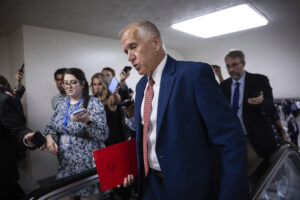The Dictatorship
Democrats’ anti-Trump ‘TACO’ insult is a political disaster waiting to happen

Democrats are trying to make “TACO” — or “Trump always chickens out”— a new political slogan to get under the president’s skin. But it is not as clever a quip as they think it is, and it creates a perverse incentive for Trump to push the red buttons they don’t want him to push.
Financial Times columnist Robert Armstrong coined the term “TACO” trade last month to describe how the president, in the face of market pressure, constantly backs off the biggest tariffs he slaps on other countries. But the term really took off last week after Trump responded angrily to a question from a reporter about what he thought of the term. “Don’t ever say what you said,” he warned the reporter, after a rambling explanation of why he believes he does not, in fact, chicken out. “That’s a nasty question. To me, that’s the nastiest question.”
It is straightforwardly wrongheaded as a political slogan.
Since then Democratic lawmakers and staffers have been trying to make TACO a thing. The Democratic National Committee handed out free tacos from a truck emblazoned with the term and an image of Trump in a chicken suit near the Republican National Committee’s headquarters in Washington this week. Rep. Jamie Raskin, D-Md., posted a photo of an unappetizing taco lunch on BlueSky and wrote, “It’s TACO Tuesday on Capitol Hill! I hear the White House celebrates every day.” And in a foolishly hawkish spin on the quip, Senate Minority Leader Chuck Schumer recently condemned “TACO Trump” for negotiating a nuclear deal with Iran after his tough talk toward the country.
TACO has its merits as an analytic lens — it’s broadly true that Trump has backed down from many tariffs in response to pressure from corporate America and the markets. And it’s not hard to see why it’s tempting to pounce on any opportunity to needle Trump with a put-down that appears to bruise his ego. Think about the instant virality of the “weird” insult in the summer of 2024. But Democrats would do better to drop this one as a major talking point.
First, TACO is not entirely accurate. Even with Trump backing off his biggest tariffs, he is still maintaining hugely consequential 10% baseline tariffs on imports from every country around the world and far larger tariffs on specific industries such as steel and aluminum, and specific countries including China, Canada and Mexico. Even after Trump’s “chickening out,” his tariffs are creating an extraordinarily volatile business and investment climate, pushing us toward higher prices and generating conditions for a potentially severe downturn in economic growth. Democrats ought not to obscure that as the economy stands on the brink.
Second, it is straightforwardly wrongheaded as a political slogan. Why on Earth would Democrats dare Trump to follow through on his most extreme tariff threats? If this slogan were to really work, if it really did burrow its way into the deepest parts of Trump’s brain, then it would nudge him and his allies to cling more tightly to the most extreme versions of Trump’s bad economic policies. We’ve been fortunate to have been spared from such extremes — so far. But trade negotiations are still ongoing, and goading him to ignore potentially economy-saving pressure campaigns is foolish.
Consider how Armstrong, the columnist who coined TACO, reflected on the explosion of the term in a recent podcast episode:
Let us state clearly, chickening out is good and something to be celebrated. Bad policy chickening out, hooray. So this is an unintended consequences thing if, as I think is quite unlikely by the way, given that I am an unimportant person and the president is an important person, if this gets into his head and he digs in his heels about some of this stuff. That is really a disaster for which I am very, very sorry.
That the Democrats appear to be playing chicken with Trump and seeing who will blink first is not particularly mature, and seems to make a mockery of the stakes before us.
Third, TACO threatens to undermine Democrats’ messaging that Trump poses an existential threat to democracy. If Trump really is, as Democrats say, an aspiring autocrat willing to shred the Constitution through his assault on the freedoms of civil society, it’s a bit odd to simultaneously argue that Trump is all talk and no action. As we all know, Trump often does the opposite of chicken out: He’s not holding back in his promises to pursue an aggressive mass deportation regime, he’s doggedly pursuing a bill that will gift the rich with favorable tax codes and throw millions off of their health insuranceand he’s trying to quash freedom of expression. It’s tonally awkward to point to all these things as perilous and at the same time call the man a coward who doesn’t follow through.
Is Trump chaotic and bad at executing policy? Yes. But he does try — and succeed — at getting some consequential stuff done. Dems shouldn’t be encouraging him to do more of it — or casting the decline of a republic as a game. On top of all that: TACO just sounds corny.
Zeeshan Aleem is a writer and editor for BLN Daily. Previously, he worked at Vox, HuffPost and Blue Light News, and he has also been published in, among other places, The New York Times, The Atlantic, The Nation, and The Intercept. You can sign up for his free politics newsletter here.
The Dictatorship
Republican North Carolina Sen. Thom Tillis announces he will not run for re-election
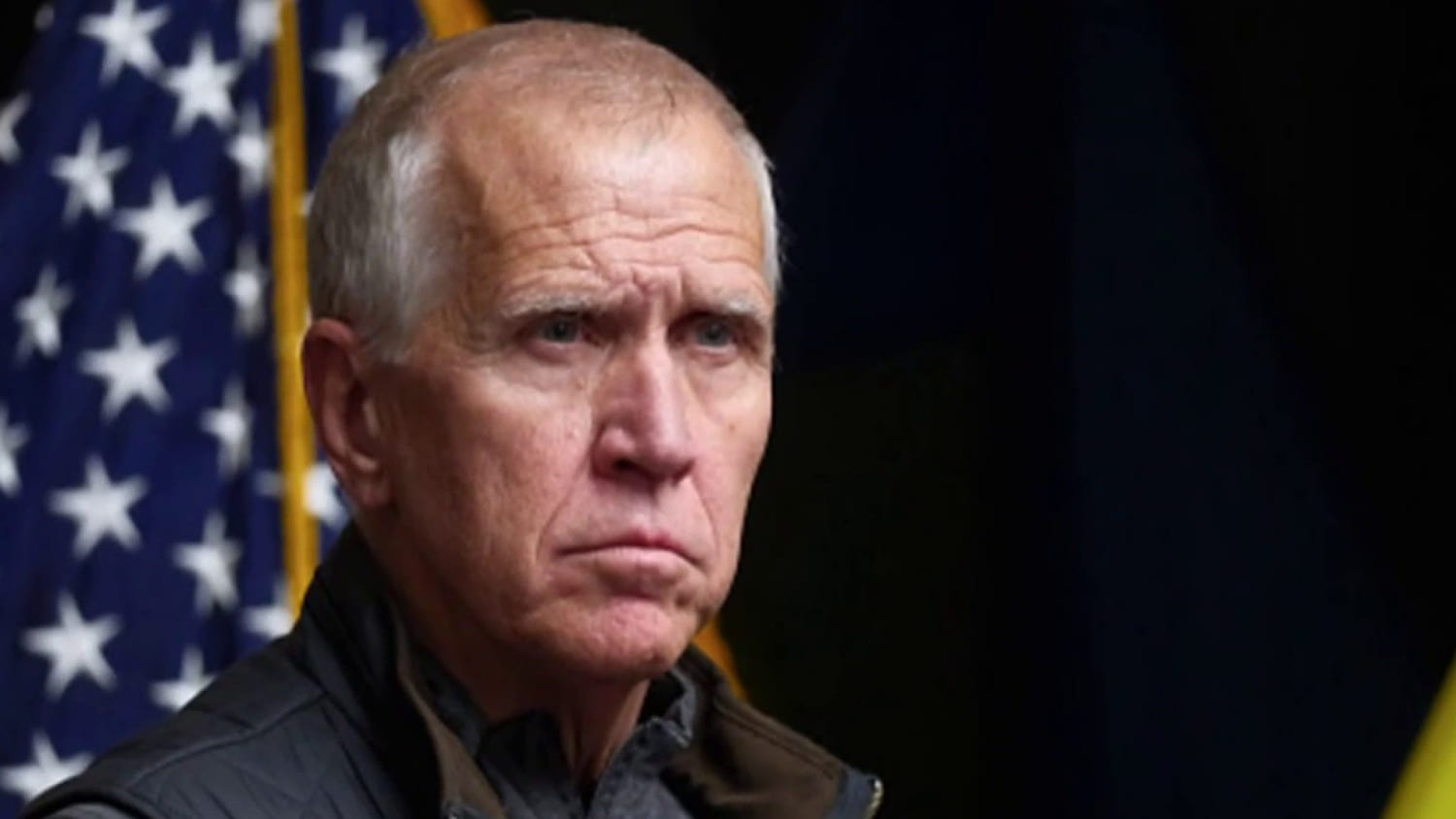
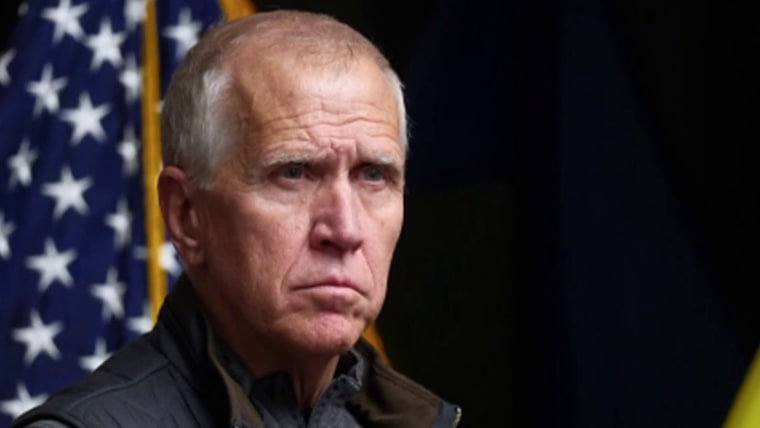
-

Analyst says it will take weeks, if not months, to know real damage to Iran’s nuclear program from U.S. airstrikes
05:12
-
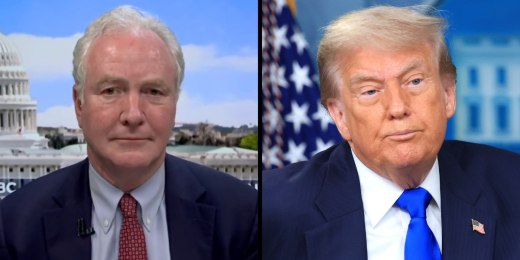
Senator Chris Van Hollen on Trump spending bill as it enters debate on Capitol Hill
08:23
-
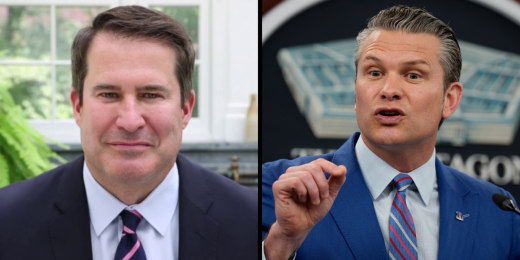
Inside the Iran airstrikes briefing: Rep. Moulton on the demeanor of Secys. Rubio, Hegseth
08:27
-
Now Playing

-
UP NEXT

‘This bill is a ripoff’: Sen. Amy Klobuchar on Trump Budget Bill
08:51
-

Family of Venezuelan man deported to El Salvador has no idea of his condition
02:53
-

Protests grow over as Florida’s ‘Alligator Alcatraz’ set to open
01:19
-
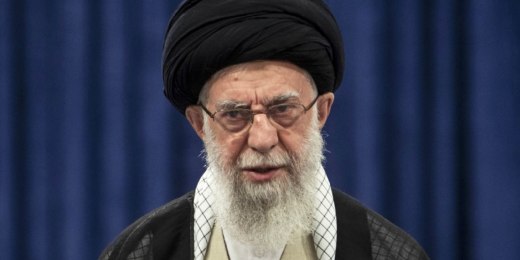
Middle East expert discusses impact of U.S. strikes on Iranian regime and Supreme Leader
06:56
-
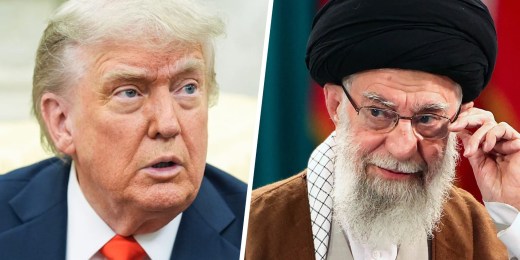
Fmr. U.S. Envoy to Iran reacts to U.S. strike on nuclear facilities and says Iran won’t negotiate soon
11:59
-

Anti-war protests form in New York City following U.S. strikes in Iran
02:27
-

Top House Armed Services Democrat: Trump violated the law with U.S. strikes on Iran
04:41
-
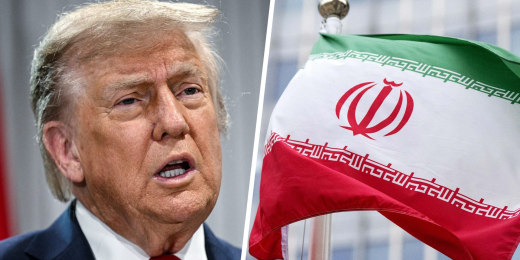
Fmr. U.S. Envoy to Iran says Trump should be more patient when seeking new Iran nuclear deal
09:16
-

Former Marine asks for sympathy for troops put in difficult position in L.A. over protests
05:05
-

Retired Lt. Gen. warns any U.S. operation against Iran’s nuclear program comes with heavy risks
08:57
-
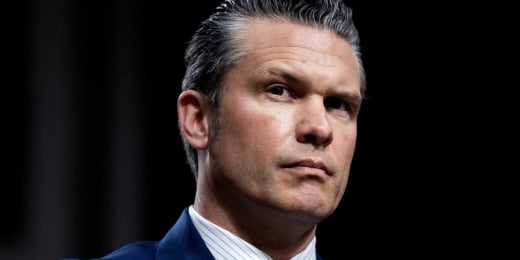
Rep. Auchincloss slams Defense Secretary Hegseth after fiery Capitol Hill national security hearing
05:46
-

Former GOP advisor questions what advice Trump is listening to over Iran decision
07:44
-

Rep. Garcia questions new rules on congressional ICE facility visits and calls them ‘illegal’
07:05
-

Fmr. Rep. Riggleman torches Trump over handling of Israel-Iran conflict and his key decision
06:48
-

Israel says it killed top Iranian commander in strike
02:34
-

Mahmoud Khalil vows to keep speaking out against the war in Gaza: ‘The fight is far from over’
06:17
-

Analyst says it will take weeks, if not months, to know real damage to Iran’s nuclear program from U.S. airstrikes
05:12
-

Senator Chris Van Hollen on Trump spending bill as it enters debate on Capitol Hill
08:23
-

Inside the Iran airstrikes briefing: Rep. Moulton on the demeanor of Secys. Rubio, Hegseth
08:27
-
Now Playing

Republican North Carolina Sen. Thom Tillis announces he will not run for re-election
02:41
-
UP NEXT

‘This bill is a ripoff’: Sen. Amy Klobuchar on Trump Budget Bill
08:51
-

Family of Venezuelan man deported to El Salvador has no idea of his condition
02:53
The Dictatorship
RFK Jr. wants all Americans to use wearable health tech. I have questions.
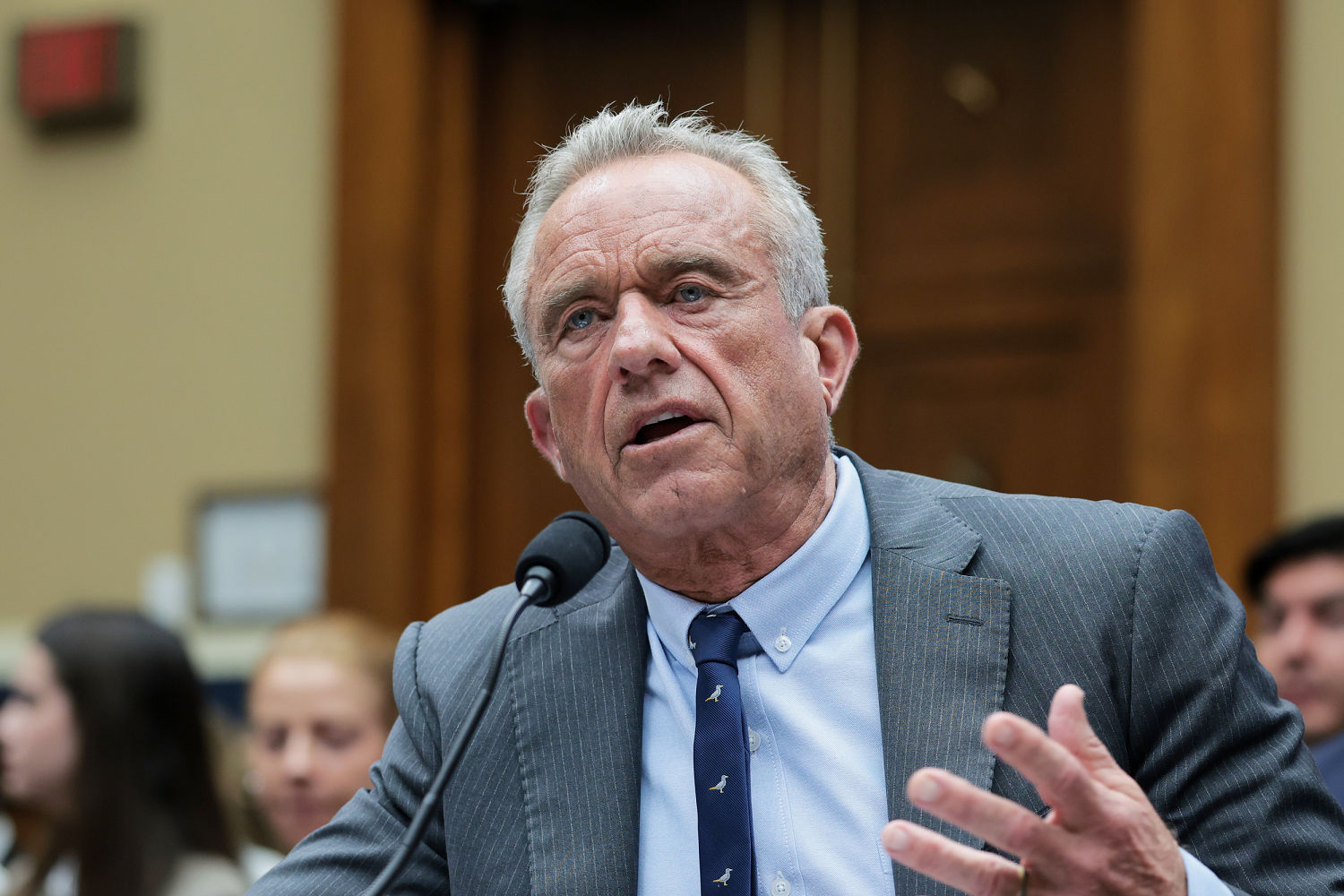
In a congressional hearing this past week, Health and Human Services Secretary Robert F. Kennedy Jr. shared his views on improving the health of Americans. “My vision is that every American is wearing a wearable within four years,” he said. And next week, his department is scheduled to launch one of “the biggest campaigns in HHS history,” focused on encouraging Americans to use wearable technology to “take control over their own health.”
Making wearable health technology accessible to more Americans is an excellent idea — the massive $63 billion market for fitness trackers and $12.6 billion glucose monitor sector are growing exponentially due in part to the fact that awareness of one’s biometrics, from steps taken to sleep quality to calories consumed, can help improve health. But we shouldn’t overstate the power of these devices to transform the well-being of Americans, both because of the limitations of these technologies and because of the administration promoting it.
Making wearable health technology accessible to more Americans is an excellent idea — but we shouldn’t overstate the power of these devices.
Wearable health aids have a long history. Leonardo da Vinci designed the first pedometer around 1500, and Holter heart monitors were invented in 1949. Digital technology, however, has accelerated innovation in this space exponentially, such that in the 15 years since the release of the first step-counting Fitbit in 2010, devices now track sleep, breath, stress levels and more.
A federal campaign to promote wearables appeals to the commonsense idea that the more you know, the better equipped you are to improve your health — and thus more Americans should have access to this knowledge. And this initiative certainly lines up philosophically with the individualistic sensibility at the heart of the “Make America Health Again” movement’s animating definition of wellness, which elevates self-knowledge — “do your own research” — above clinical expertise, especially if it involves pharmaceutical intervention. Indeed, in the hearing, Kennedy described friends who “lost their diabetes” after wearing glucose monitors, thanks to their “miraculous” awareness of the impact of their dietary choices (evidence does show that diet and exercise changes can reverse Type 2 diabetesand that continuous glucose monitoring can be effective in motivating patients to make those shifts). Notably, the proposed HHS wearables campaign would come with a price tag of $80 a month for individuals, as opposed to GLP-3s, which can cost a person over $1,000 monthly.
You don’t need to be a MAHA acolyte to find this strategy compelling for a nation struggling with both chronic illness and the cost of health care. Furthermore, large-scale advertising campaigns encouraging personal fitness are a long-standing and effective federal strategy. It was Kennedy’s uncle President John F. Kennedy who most famously employed this approach, launching a national publicity campaign to encourage Americans to be more physically active, both in their personal lives and by lobbying local officials to fund physical education and community recreation programs.
That was during the Cold War, and JFK often linked the need to get moving with military preparedness. But he also talked about taking responsibility for looking good and feeling “vigorous,” for men, women and children alike. “Soft Americans” were morally suspect and national security risks, the then-president-elect wrote in a 1960 Sports Illustrated essay, but they also looked less attractive at the beach or the pool, the environments in which he was often photographed.
Physical education classes were as important as academic offerings, his administration emphasized in pamphlets, posters and even a special-release jingle written for P.E. classes that encouraged boys and girls through a playful, synchronized routine to “get rid of that chicken fat.” These federal campaigns didn’t solve the issues of sedentariness and obesity, but they were integral in establishing the expectation that it is the responsibility of every American to care about their physical fitness.
Echoes of the elder Kennedy’s approach are unmistakable in Robert F. Kennedy Jr.’s announced advertising campaign. The differences, however, should give us pause. For one, the sophisticated wearable technology the health secretary celebrates as “miraculous” is much more powerful than the toe touches and jumping jacks promoted in JFK’s day. This is a boon, but we should be wary of the “techno-utopianism” that assumes more sophisticated technology always yields a better future.
We should not overstate the “miraculous” potential of any intervention, especially given this administration’s repeated ethical breaches on questions of security and science.
Psychologists, for example, track a recent rise in orthorexia, body dysmorphia and anxiety, disorders that only stand to be aggravated by access to endless streams of biometric data. More philosophically, sociologists warn of the dangerous tendency toward “the quantified self” and attendant “intimate forms of surveillance,” in which we normalize defining ourselves as an agglomeration of figures and metrics, existing only to be optimized.
Most immediately, as Kennedy was asked in the hearing but did not clearly answer, are concerns about data collection and privacy, especially relevant due to recent breaches like the 23andMe hackwhich leaked the data of millions of users to the public and potential nefarious actors. Fitness tracker data has already created a specific liability. The Strava running app, for example, has repeatedly revealed sensitive locations of troops and political figures to the public.
These are thorny but perhaps resolvable problems. It is true that making America healthy is an urgent priority and that individuals should be empowered to be stewards of their own well-being. We must use every tool at our disposal to achieve better health outcomes, and this can include partnering with the dynamic fitness and technology industries, the innovation of which outpaces that of the public sector.
That said, we should not overstate the “miraculous” potential of any intervention, and especially given this administration’s repeated ethical breaches on questions of security and science — and even its alleged affinity for eugenics — we should be especially vigilant about how this initiative is plays out.
Natalia Mehlman Petrzela is Professor of History at The New School in New York City. She is the author of two books, most recently “Fit Nation: The Gains and Pains of America’s Exercise Obsession,”and is currently a Carnegie Fellow, working on a new book about education and political polarization.
The Dictatorship
Pete Hegseth’s press conference shows how the Trump administration views the media’s job
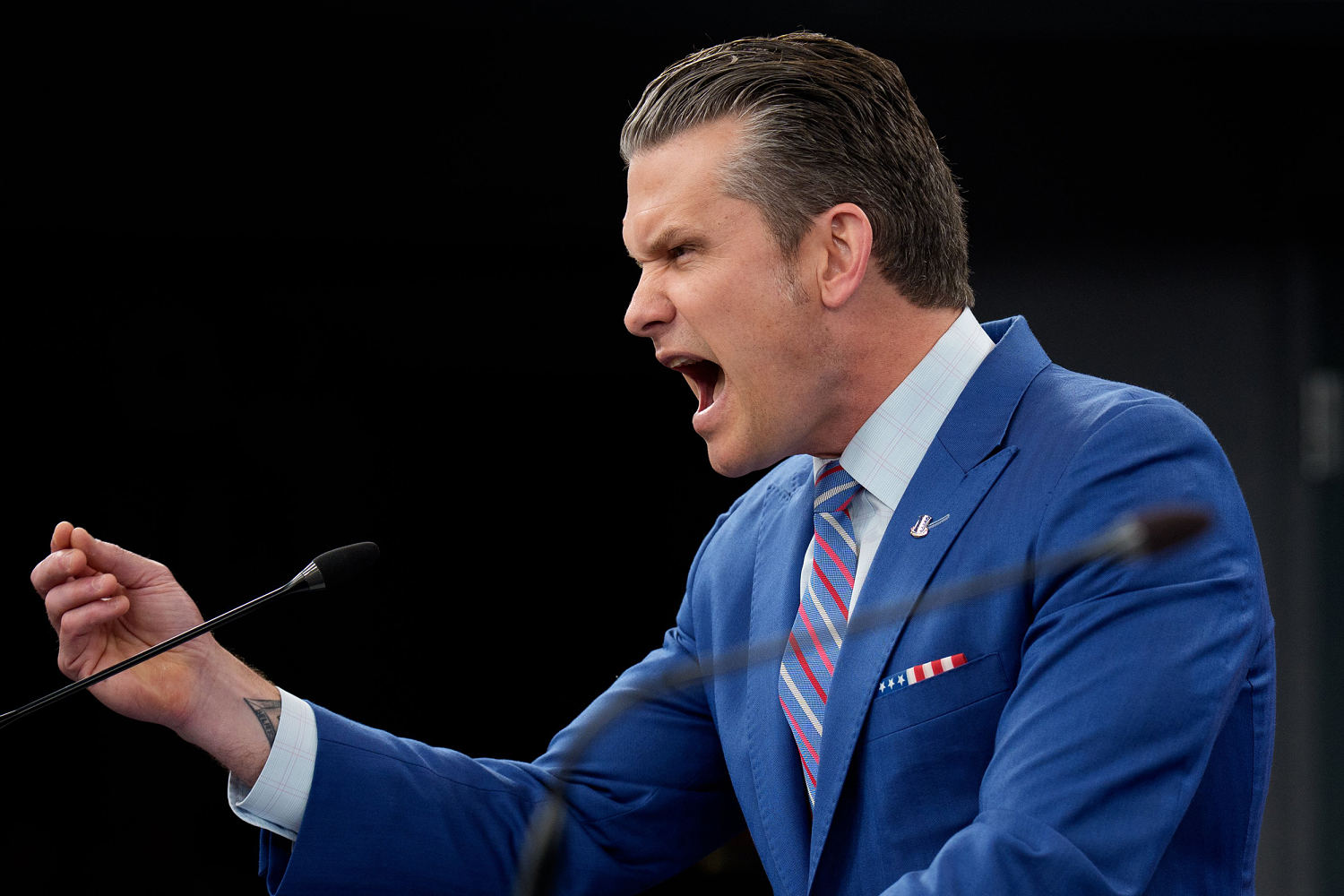
Defense Secretary Pete Hegseth was in full crybully mode during a Thursday news conference that, according to a Truth Social post from President Donald Trump, was intended “to fight for the Dignity of our Great American Pilots” and provide “interesting and irrefutable” evidence of the “LEGENDARY” success of last week’s unilateral U.S. attack on Iran’s nuclear facilities.
But Hegseth didn’t provide definitive evidence of the actual extent of the damage inflicted on those facilities by 30,000-pound bunker-busting bombs — or clarity on whether Iran pre-emptively moved its stash of weapons-grade uranium. Instead, the secretary complained that certain media outlets failed to act as unquestioning cheerleaders of a stunning act of aggression against a longtime U.S. adversary — an attack that the president had immediately declared an unequivocal success.
The 42-minute press conference was a useful distillation of the Trump administration’s posture vis-à-vis news coverage: playing the pure-as-driven-snow victim while lashing out in fashion.
It is quite literally the job of reporters to ask the government for evidence to back up its claims.
Hegseth insisted the attack was successful in “decimating — choose your word — obliterating, destroying Iran’s nuclear capabilities.” He blasted the press for reporting on a leaked preliminary intelligence assessment by the Pentagon’s Defense Intelligence Agency, which asserted that the U.S. attack may have only set back Iran’s nuclear program by months.
The secretary repeated the fact that the DIA’s initial assessment was of “low confidence” and insisted the reporting should have instead been about the awesomeness of the weapons and the bravery of the pilots who conducted the mission. I’m sure the weapons were awesome and the pilots were brave — and details of those tools of war and the risks of the mission were, in fact, reported widely in the mainstream press. But no matter which party is in power, it is quite literally the job of reporters to ask the government for evidence to back up its claims. And few details are more crucial to verify than those pertaining to military conflict.
That’s not how Hegseth, a former co-host of “Fox & Friends,” sees the media’s role in covering the Trump administration.
“How about we celebrate … how about we talk about how special America is that only we have these capabilities? I think it’s too much to ask, unfortunately, for the fake news,” Hegseth added. “We’re urging caution about pre-premising entire stories on biased leaks to biased publications trying to make something look bad. How about we take a beat, recognize first the success of our warriors, hold them up, tell their stories, celebrate that, wave an American flag, be proud of what we accomplished.”
But that’s the thing. We don’t know “what we accomplished.” That’s what journalists are asking the government, represented by Hegseth, to prove by sharing actionable evidence.
Hegseth even lashed out at his former colleague, longtime Fox News national security correspondent Jennifer Griffin, for having the temerity to ask the defense secretary about satellite imagery that showed at least a dozen trucks at one of Iran’s nuclear facilities days before the attack.
“Jennifer, you’ve been about the worst. The one who misrepresents the most intentionally,” the former daytime talk show host scolded the longtime hard-news reporter. Griffin retorted, “In fact, I was the first to describe the B-2 bombers, the refueling, the entire mission with great accuracy … so I take issue with that.”
Trump, long known to hire people based on their Fox News appearances, gave Hegseth high marks for his performance.
The president — a notorious anti-free speech ideologue — was on a press-hating tear of his own this week. He called for the firing of BLN reporter Natasha Bertrand, posting to Truth Social, “I watched her for three days doing Fake News. She should be IMMEDIATELY reprimanded, and then thrown out ‘like a dog.’” And the president also had his lawyer threaten to sue The New York Times and BLN for reporting on the DIA’s initial post-attack intelligence report. According to the Times, Trump’s lawyer wrote that the paper’s reporting “had damaged Mr. Trump’s reputation” and demanded a retraction and apology for “false,” “defamatory” and “unpatriotic” reporting.
It doesn’t get much more “crybully” than the most powerful person in the world siccing his lawyer on news outlets whose reporting on a government document hurt his feelings.
But there’s a lesson here for institutions, including universities, white shoe law firms and media corporations that continue to face Trump’s shakedown threats: Don’t give the schoolyard bully your lunch money in the hopes that he won’t demand it again.
Don’t give the schoolyard bully your lunch money in the hopes that he won’t demand it again.
The Times’ deputy general counsel, David E. McGraw, responded to Trump’s legal threat with a letter of his own, writing that it would be “irresponsible for a president to use the threat of litigation to silence a publication” for reporting on the government’s own intelligence that suggested “the President may have gotten it wrong in his initial remarks to the country.”
“No retraction is needed. No apology will be forthcoming. We told the truth to the best of our ability. We will continue to do so,” the letter concluded.
That’s how you do it. Simply ignore being insulted as “unpatriotic” for asking questions to which the public deserves to know the answers. Don’t report on war as if it were a child’s game of heroes and villains and super-cool fireworks and explosions. Make the government prove its own claims. And do not agree to settlements when it comes to Trump’s bogus, anti-free speech lawsuit lawfare. Refuse to be bullied and all the bullies can do is cry more.
Anthony L. Fisher is a senior editor and writer for BLN Daily. He was previously the senior opinion editor for The Daily Beast and a politics columnist for Business Insider.
-

 The Josh Fourrier Show8 months ago
The Josh Fourrier Show8 months agoDOOMSDAY: Trump won, now what?
-
Uncategorized8 months ago
Bob Good to step down as Freedom Caucus chair this week
-

 Politics8 months ago
Politics8 months agoWhat 7 political experts will be watching at Tuesday’s debate
-

 Politics8 months ago
Politics8 months agoHow Republicans could foil Harris’ Supreme Court plans if she’s elected
-
Economy8 months ago
Fed moves to protect weakening job market with bold rate cut
-
Economy8 months ago
It’s still the economy: What TV ads tell us about each campaign’s closing message
-

 Politics8 months ago
Politics8 months agoRFK Jr.’s bid to take himself off swing state ballots may scramble mail-in voting
-
Uncategorized8 months ago
Johnson plans to bring House GOP short-term spending measure to House floor Wednesday




